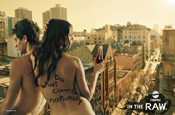
Coca-Cola last year announced a partnership with US conglomerate Cargill to create a stevia-based product called Truvia, but PepsiCo has beaten its rival to market with its version, PureVia.
Both are hoping to capitalise on growing concern over food additives, preservatives, and artificial sweeteners often found in diet drinks, such as aspartame.
PureVia, a collaboration with US firm Whole Earth Sweetener, will debut in flavours being introduced to PepsiCo's enhanced water brand, SoBe Life, following approval by the US Food and Drug Administration (FDA).
The three variants, which will be rolled out in Latin America, are Tropical Pomegranate, Orange-Tangerine and Straw-berry-Kiwi.
A tabletop version of PureVia, for use in place of sugar in drinks and on cereal and fruit, will launch in the US in the autumn. It will then be rolled out across Pepsi's drink and food products globally.
'This is a potential game-changer among zero-calorie sweeteners,' said Lou Imbrogno, senior vice-president of Pepsi Worldwide Technical Operations. 'PureVia is all natural. It's extracted from the stevia plant leaf and not synthetically produced.'
Coca-Cola is awaiting FDA approval for Truvia; Cargill launched a Truvia tabletop version last month.
Pepsi Raw, a premium cola made from natural ingredients, including cane sugar, launched in February.
Data file
- Stevia is up to 300 times sweeter than sugar.
- The active sweetener in PureVia is Reb A, the sweetest, purest part of the stevia leaf. Other forms of stevia are sold in the US as dietary supplements.
- By using cane sugar instead of corn syrup in Pepsi Raw, Pepsi claims that it has reduced the calorie content of a 300ml bottle, from about 126 calories a serving in a standard Pepsi, to about 117 calories.


.jpg)


.jpg)